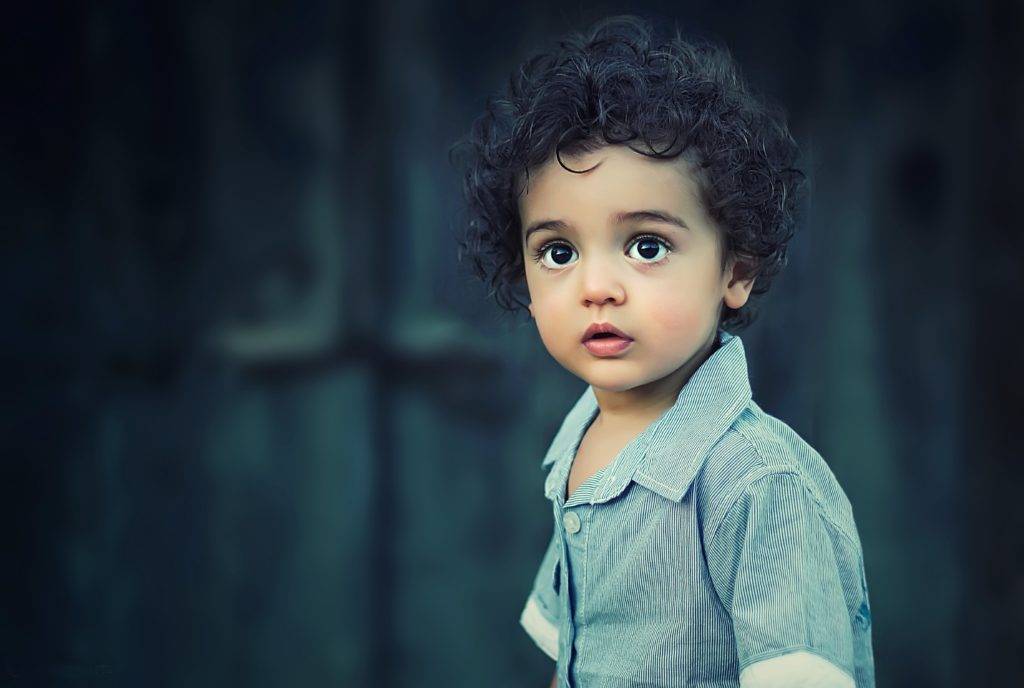Stress is something that we really can’t avoid. Oftentimes, we find it hard to manage such things. What more is there for our children?
Stress is a common occurrence. Since we’re all trying our best during these trying times, sometimes you won’t even be able to distinguish between what’s normal and what isn’t!
How do we ensure that our children are mentally okay? When is it time to seek professional help? For starters, it’s best to seek out your kid’s pediatrician.
The Connection Between Physical and Mental Health in Children
Physical and mental health are closely linked. Both have a huge impact on your child’s success in life. These include their performance in school, their daily lives, and how they interact with society.
These are all interconnected, so consider mental health as well. If we always take note of our children’s physical health, we should also prioritize their mental health.
If you’re wondering how mental and physical health are connected, we’ll give you an example.
A child who experiences chronic pain always feels discomfort. This may lead to anxiety or depression. On the other hand, if your child has anxiety or depression, he is likely to have stomach aches and headaches.

Both impact each other and vice versa. Hence, don’t ignore the symptoms if your child faces physical or mental health problems.
Mental Health Problems in Children
Pediatricians are doctors specializing in children’s health. So, they’re the first in line when seeking mental help for kids and teens. They treat both physical and mental health concerns in children. But if things get tough, they’ll refer you to a specialist.
According to the Centers for Disease Control and Prevention (CDC), the most common mental health concerns pediatricians deal with are the following:
- Attention Deficit or Hyperactivity Disorder (ADHD)
The child can’t pay attention well and has very active and impulsive behaviors
- Tourette Syndrome
The child has sudden tics or involuntary twitching and repeated body movements.
- Obsessive-Compulsive Disorder (OCD)
The child has an obsession, and he needs to do things repeatedly to satisfy it.
- Post-traumatic Stress Disorder (PTSD)
The child experienced a traumatic experience, resulting in flashbacks, nightmares, and health-related issues.
- Anxiety
The child feels fearful, uneasy, and dreadful.
- Depression
The child feels continuous sadness, resulting in a lack of interest and motivation to do things.
- Oppositional Defiant Disorder (ODD)
The child is uncooperative all the time.
- Conduct Disorder (CD)
The child has difficulty following rules, which often leads to violent behaviors
In addition, your child’s pediatrician checks for autism, signs of learning disabilities, self-harm, and substance use for a more comprehensive diagnosis.

Common Mental Health Indicators in Children
Just like us adults, our children also face problems and issues. They’re very emotional and have lots of thoughts and feelings in their minds. If they frequently manifest these symptoms that already affect your child’s daily routine, it might indicate a deeper mental health problem.
Look out for the following behavioral changes in your child:
- Developing physical symptoms such as headaches, stomach pains, rapid breathing, a fast heartbeat, or digestive problems due to anxiety
- Disrupted sleep patterns, such as difficulty sleeping or feeling excessively tired during the day
- Having persistent and uncontrollable worries, often about minor things
- Spending more time in isolation or withdrawing from social activities
- Experiencing constant nervousness or agitation
- Avoiding situations or activities due to fear or anxiety
- Changes in appetite, either eating too much or too little
- Easily giving up on challenging tasks or activities
- Struggling academically or with schoolwork
- Feeling consistently sad, irritable, or low in mood
- Experiencing feelings of guilt or self-blame
- Expressing thoughts or feelings about death or suicide

How Your Pediatrician Address Mental Health Concerns
Pediatricians are typically the first in line when seeking help regarding children’s mental health issues. Here’s what you can expect if you have your child checked.
Firstly, your child’s pediatrician will ask questions about your kid’s mood, behavior, and any other changes he observes. He may use standardized screening tools to assess your kid’s mental health status.
If your child’s pediatrician suspects a mental health disorder, he will conduct a pediatric mental health evaluation. Your child may undergo a psychological evaluation or a developmental screening.
The pediatrician will develop your child’s mental health care plan. This may include psychotherapy, medication management, and mental health support services, depending on your child’s needs.
If the pediatrician thinks your child’s mental health issue is somehow complicated, he may refer you to a specialized mental health professional. In this way, you’ll be able to get a more accurate diagnosis.
Other Mental Health Professionals
Aside from your pediatrician, other mental health professionals can help with your child’s concerns. The earlier you consult with them, the better the support and resources we provide for our children’s emotional growth.
Each mental health professional has different specialized expertise, so consult with who you think is best for your kid. Nevertheless, you may always ask your child’s pediatrician for recommendations if you don’t know which mental health professional to approach.
Development and Behavioral Pediatrician
This is a subspecialty field in pediatrics that focuses on children’s developmental or behavioral health. They have the training and expertise in clinical assessment and diagnosis, the development of treatment plans, and ensuring your child’s best long-term outcomes.
A developmental pediatrician may be the first in line to collaborate with your child’s pediatrician. With their subspecialty, they’re referred by your pediatrician to get a higher level of clinical management of your child’s case.
Child and Adolescent Psychiatrist
This is a specialty field in psychiatry that focuses on kids and teens. The child and adolescent psychiatrist recognizes and treats mental health issues such as depression, and bipolar disorder. They can dispense medication if required.
Clinical Child Psychologists
They hold either a Ph.D. or a Psy.D. degree. Clinical child psychologists have knowledge and expertise in children’s mental health. They could also collaborate with a psychiatrist or any other medical professional if medication is required for the treatment.
Neurologists
These medical professionals specialize in the nervous system. So if you believe that your child’s mental health concern is nerve-related, a neurologist can help provide treatment options.
Neuropsychologists
Neuropsychologists are highly focused on evaluating the structure and function of the brain. Neuropsychologists can help evaluate your child’s mental behavior. They also help in assessing your child’s learning abilities and problem-solving skills.
Neuropsychologists use specialized assessments to understand the root cause. They’ll provide results if your child faces a learning disability or a mental health issue.
School Psychologists
As an in-house mental health professional at the school, they assist students with mental health difficulties. They utilize the child’s school records to fully understand and assess the problem, confer with the parents, and make recommendations for further evaluation.
Licensed Clinical Social Workers
Also known as LCSW or LMSW, licensed clinical social workers are individuals who have a master’s degree in social work (MSW). They evaluate people of all ages’ mental health status, recognize them, and create individualized treatment plans.
Support Your Child’s Emotional Well-Being
The family also plays a big role in your child’s mental health. So, it’s best to create a safe and supportive environment at home. We can do many things to support our children’s emotional well-being. Here are some healthier coping strategies for their mental physique.
Practice open communication
Encourage your child to talk to you openly about their feelings. Listen to them without even judging or criticizing them for their actions.
Foster the development of positive relationships
Let your child participate in activities he or she enjoys! Help them build positive relationships with their friends, family, and loved ones through proper communication.
Encourage a healthy lifestyle
A healthy lifestyle is beneficial for physical and mental health. Let your kids consume a healthy, balanced diet. Get the right amount of sleep, and exercise regularly.
Be a role model
Influence your children’s behavior by showing them healthy behaviors and coping strategies. This helps, as you heavily influence their behavior and mannerisms.
Seek help when necessary
Consulting your child’s pediatrician or a mental health professional about their mental health is the best option. That’s especially true if you’re worried about their mental health.
If you think that your child needs intervention, talk to your child’s pediatrician to get the proper guidance in managing your child’s concerns. Your child’s doctor is better equipped to give you the necessary support and care!
Don’t Ignore Your Child’s Mental Health
Mental health isn’t something that you’re supposed to ignore, especially in your children. Both mental and physical health are intertwined. So, if one part is affected, the other will be compromised.
Help your kid facing mental health problems by giving them the proper intervention. We want them to grow healthily. Give them a safe home environment, and seek professional help promptly. In this way, you’re helping your kid in the best way possible.
Not only does Omega Pediatrics care for your child’s physical health, but also their mental health. If you think your kid has some mental issues, don’t delay in booking an appointment with us. We gladly welcome you to our office.
Omega Pediatrics is open until nine in the evening to accommodate you and your child. We’ll do our best to give your kid the best solution to battle mental health concerns.



